The Microbiologist chats with our new Global Ambassador for Malaysia, Petr Heděnec, who is an Assistant Professor/University Lecturer at the Institute of Tropical Biodiversity and Sustainable Development at Universiti Malaysia Terengganu.
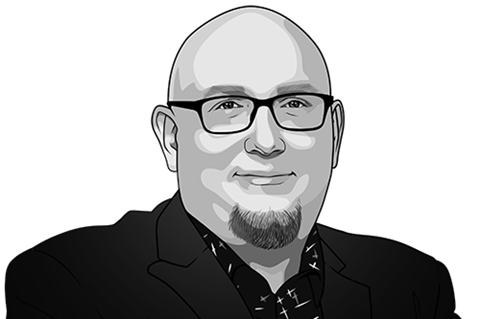
Petr Heděnec obtained a Ph.D. in Ecology with a focus on Microbial Ecology at Charles University in Prague under the supervision of Prof. Jan Frouz (2009-2013). After completing his Ph.D., he continued as a postdoc at the Chengdu Institute of Biology at the Chinese Academy of Sciences under the supervision of Prof. Xiangzhen Li (2014-2015).
READ MORE: COP29: Doomism is turning audiences off climate action - so let’s share the success stories
READ MORE: Streptomycetes reveal their arsenal of signalling compounds
Petr then pursued a one-year postdoctoral fellowship at the University of Neuchâtel in the lab of Prof. Edward Mitchell through the Swiss Government Excellence Postdoctoral Fellowship (2017-2018). He also obtained a two-year Marie Curie postdoctoral fellowship in the lab of Prof. Lars Vesterdal at the IGN department of Copenhagen University and Prof. Johannes Rousk from Lund University.
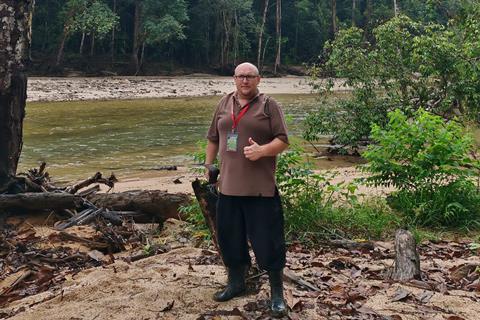
During his postdoctoral work, Petr has focused on plant-soil interactions, the role of soil microbes in carbon and nitrogen cycling, diversity and composition of gut microbiome and the beneficial effects of the soil microbiome on plant health. Petr possesses extensive laboratory skills, including the amplicon sequencing techniques, cultivation-dependent techniques as well as PLFA methods. He is also skilled in informatics and computational techniques, such as statistics and programming in R, data meta-analysis based on surveys of published data.
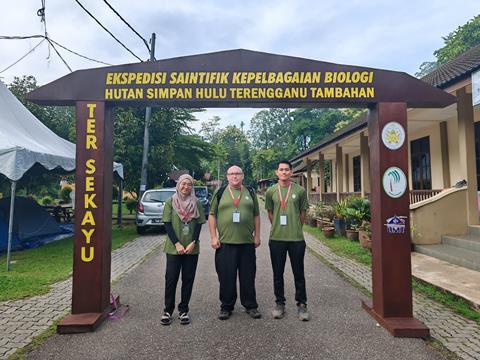
Since 2021, he has been an Assistant Professor/University Lecturer at the Institute of Tropical Biodiversity and Sustainable Development at Universiti Malaysia Terengganu. His main research interests in Malaysia include the diversity of soil microbiomes and their potential roles in biogeochemical cycling, bioremediation, and eco-agronomy.
What first sparked your love of microbiology?
I think it started during high school. I was always fascinated by microbes, especially human pathogens like Yersinia pestis and the history of this pathogen. On the other hand, I was amazed by industrial microbes, such as yeast (fungi) and bacteria involved in the fermentation of sauerkraut and kimchi.
What’s the microbe that most fascinates you and why?
Definitely fungi, like yeasts, due to their extensive use in the food industry. I also find Streptomyces fascinating—soil-dwelling bacteria with enormous metabolic potential. These bacteria secrete a variety of enzymes and proteins that are involved in decomposing plant residues. Streptomyces are also known for the pleasant smell after rain, caused by a metabolic product called geosmin. Additionally, these bacteria are closely associated with potworms, tiny soil animals related to earthworms.
What’s the best career advice you’ve ever been given?
I greatly appreciate the advice of my PhD and postdoc supervisors, such as Jan Frouz from Charles University in Prague, Xiangzhen Li from Fujian Agriculture and Forestry University, and Lars Vesterdal from the University of Copenhagen.
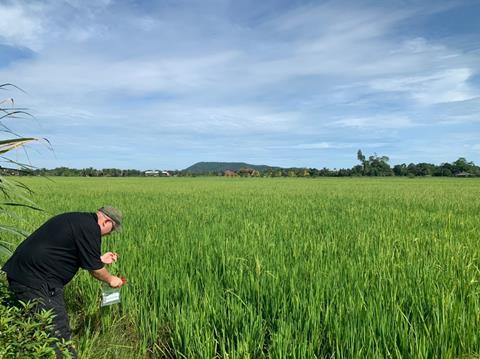
They all provided invaluable guidance to stay on the right path and to be patient. One of the best pieces of career advice I received was to apply for the Marie Curie Fellowship, which significantly boosted my career.
What real-world problem would you eventually love to solve with microbiology?
Together with my colleague Dr. Amirah Alias, my MS student Umar, and my PhD student Farhana, I am currently focused on the role of microbes in transforming and stabilizing soil organic matter (SOM) in soils and sediments.
Specifically, I study bacteria involved in metabolizing complex plant residues and converting them into bacterial biomass, which then becomes necromass, eventually binding to minerals and being stored in the soil for long periods.
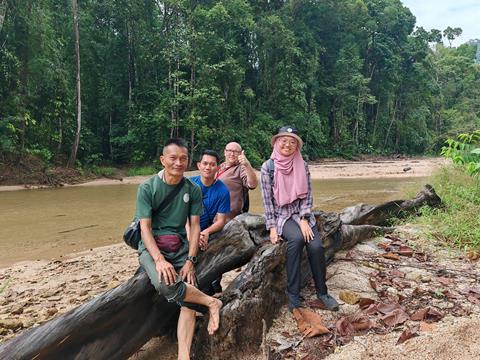
I’ve also started a project on the gut microbiome of soil fauna and its potential in degrading complex polymers, like microplastics. The idea is that the gut microbiota of termites or cockroaches, which can metabolize complex organic compounds like lignin, may also be able to break down polymers such as polystyrene.
What keeps you awake at night?
Mostly data analysis. Sometimes I find myself stuck on my laptop with data well past midnight.
How do you let your hair down/What do you do to relax?
I mostly relax by listening to music—especially Led Zeppelin, Deep Purple, or Chick Corea.
Why did you apply to become a Global Ambassador and what would you like to do in your new role?
My colleague and friend, Professor Alex Rosado from KAUST, encouraged me to get involved with AMI. I want to join this community to actively promote microbiology to a wider public, particularly to students in Malaysia.
At the Institute of Tropical Biodiversity and Sustainable Development at the University of Malaysia Terengganu, where I work, it’s important to promote microbiology—especially applied microbiology—so that people can better understand the potential of microbes in the food industry and the decomposition of complex polymers.
Petr Heděnec is an Assistant Professor/University Lecturer at the Institute of Tropical Biodiversity and Sustainable Development at Universiti Malaysia Terengganu.
Find out about becoming a Global Ambassador with AMI.
Topics
- Alexandre S Rosado
- Applied Microbiology International
- Bioinformatics
- Bioremediation
- Charles University
- Chengdu Institute of Biology
- Climate Action
- Community
- Copenhagen University
- Edward Mitchell
- Global Ambassadors
- Healthy Land
- Jan Frouz
- Johannes Rousk
- Lars Vesterdal
- Lund University
- Soil & Plant Science
- Streptomyces
- Sustainable Microbiology
- Universiti Malaysia Terengganu
- University of Neuchâtel
- Xiangzhen Li







No comments yet